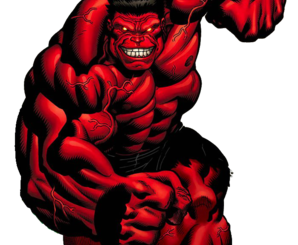 Comic book adaptations have never been considered art. A majority of them have been rather bad, where filmmakers seem to think that the phrase “comic book” is a cover-all excuse to throw story logic and character development out the window. There have been a few that have attempted to break out of their genre ghettoization by injecting more realistic levels of characterization with various mixed results. But none have ever attempted to be a straight out character study until director Ang Lee’s adaptation of Marvel Comics tragic hero The Hulk.
Comic book adaptations have never been considered art. A majority of them have been rather bad, where filmmakers seem to think that the phrase “comic book” is a cover-all excuse to throw story logic and character development out the window. There have been a few that have attempted to break out of their genre ghettoization by injecting more realistic levels of characterization with various mixed results. But none have ever attempted to be a straight out character study until director Ang Lee’s adaptation of Marvel Comics tragic hero The Hulk.
Dr. Bruce Banner is a scientist working on cellular regeneration technology, a field that could revolutionize medicine, negating the need for many medical procedures. Joining him in his research is the lovely Dr. Betty Ross, whom he had been romantically involved with in the past. After a lab accident accidentally overdoses Banner with Gamma radiation, he finds that under times of great stress or anger he metamorphs into a large, green, muscle-bound hulking creature.
Complicating Banner’s search for a cure is the reappearance of his biological father (Nick Nolte, looking very much like that recent drunk driving mug shot that was leaked to the press), a former military research scientist who experimented on a young Bruce and whom Bruce has no memory of. Dr. Banner senior is convinced that his son’s new condition is partially a result of his own experiments. Also interested is Glenn Talbot, the head of a weapons development company who sees big government contracts in his future through the military application of Bruce and Betty’s research. After a few Hulk rampages, Bruce is finally captured by the military, lead by Betty’s father General Ross, and is forced into a final confrontation with his father that may be just a bit too cerebral for the film’s own good.
 While some may have thought it odd that a director like Ang Lee would choose do helm a comic book adaptation, the source material does play towards the director’s strength for character study. The character has its origins as a reworking of the basic Dr. Jekyll/Mr. Hyde formula (pun unintended). More recently comics writer Peter David turned in a nearly ten year long run on the series which delved deep in the Banner’s psyche, revealing him to be suffering from severe emotional scarring received from his abusive father growing up, with the manifestation of the Hulk showing up as a by-product of this.
While some may have thought it odd that a director like Ang Lee would choose do helm a comic book adaptation, the source material does play towards the director’s strength for character study. The character has its origins as a reworking of the basic Dr. Jekyll/Mr. Hyde formula (pun unintended). More recently comics writer Peter David turned in a nearly ten year long run on the series which delved deep in the Banner’s psyche, revealing him to be suffering from severe emotional scarring received from his abusive father growing up, with the manifestation of the Hulk showing up as a by-product of this.
It is from this interpretation of the character that the film’s script draws its inspiration from as Banner struggles to deal with the repressed memories of his mother’s death. These moments in the film play well. Unfortunately, the moments that don’t play well are those where Banner realizes what the accident has done to him and the powerful creature he has unleashed. Here, he acts fairly blasé, with neither fear or nor amazement. Also, Banner is shown as repressing his feelings so much, that he comes off rather bland, leaving the viewer to wonder why Betty Ross ever fell in love with him.
 The supporting players all turn in great performances. Sam Elliott is pitch perfect as General Ross, a man who is used to being unquestionably obeyed at work and unable to handle it when his daughter questions him. Nolte turns in a great performance until the last scene, where he literally begins to chew the scenery. The only character who doesn’t receive any attention from the script is Talbot, who comes across strictly one-dimensional.
The supporting players all turn in great performances. Sam Elliott is pitch perfect as General Ross, a man who is used to being unquestionably obeyed at work and unable to handle it when his daughter questions him. Nolte turns in a great performance until the last scene, where he literally begins to chew the scenery. The only character who doesn’t receive any attention from the script is Talbot, who comes across strictly one-dimensional.
Lee uses an editing style that is uniquely suited for the film. Split screens and stylized wipes between scenes give the film a visual energy that recalls the material’s comic book origins, without ever descending to the “Ka-Blam!” condescending camp of the old 60’s Batman TV series.
The action sequences are directed with great verve. The Hulk’s fight with the mutated dogs sent by the elder Banner is fierce, brutal and maybe just a little too much for younger audience members. The Hulk’s fight with the military is sure to delight comics fans with several moments having been lifted straight from the panels of the original Stan Lee/ Jack Kirby comics.




